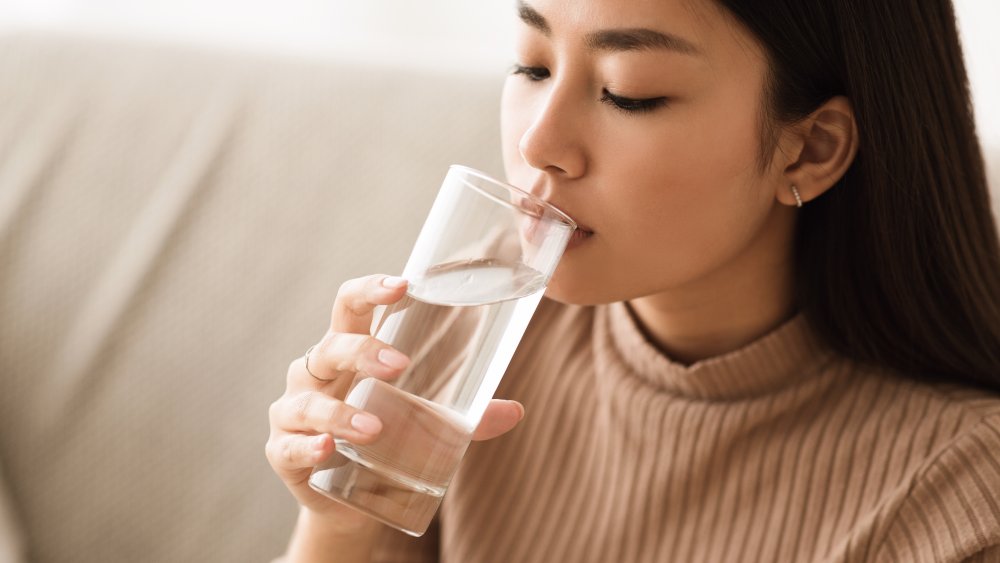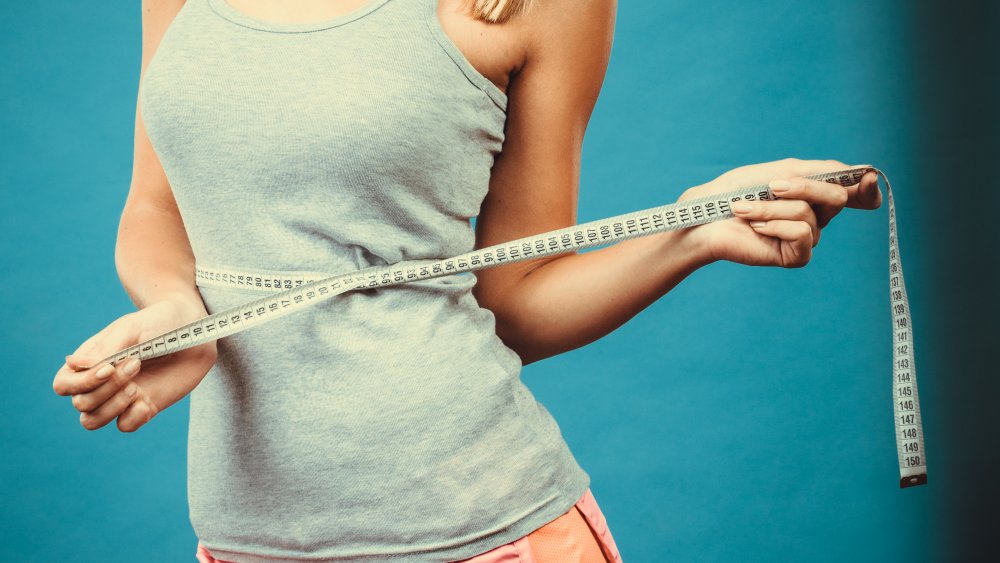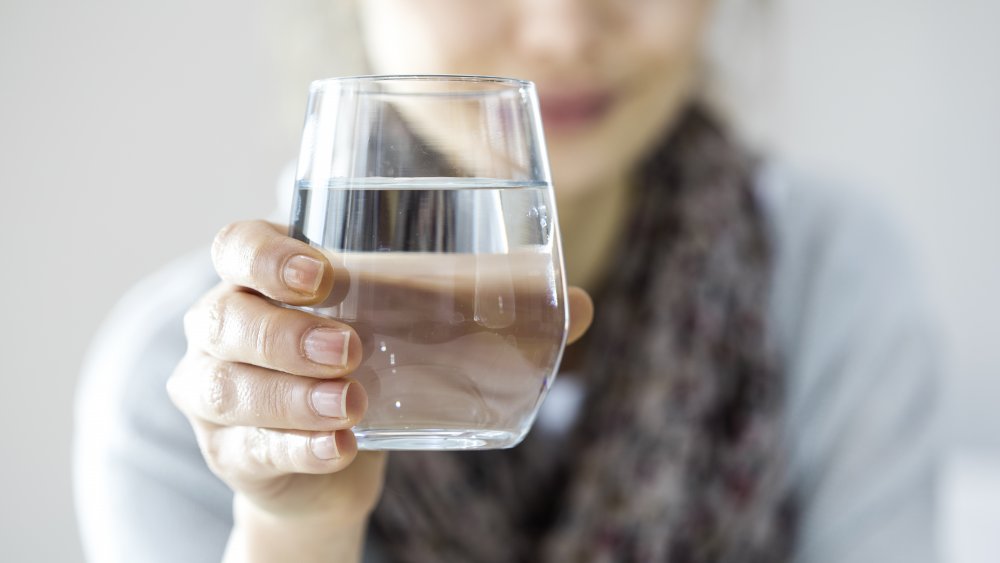The Untold Truth Of Water Fasting
A water fast is not a fast where you go without water. Instead, water fasting refers to the practice of abstaining from all food and beverages other than water. Sounds kind of... boring? Well, yes, but it's undoubtedly cheap. It's also fairly easy to do, since, unlike some other types of diet, you don't need any special foods, and you won't have to do any mathematical calculations regarding calories, carbs, fat grams, or anything else. There's going to be only one number for all of these, and that number will be 0.
A water fast isn't something you should undertake for any length of time unless you're trying to emulate Bobby Sands, in which case... don't. Just don't. Bobby Sands, who famously underwent a 66-day hunger strike in the '80s to protest inhumane conditions in British prisons, ended his water fast by dying. The human body can only go without food for so long, and then it just shuts down. If you want to try water fasting for the sake of improving your life — physically, mentally, or spiritually — you should limit yourself to only 24 to 72 hours, and no more than that. If you are new to water fasting, you should also work up to the fasting phase by gradually reducing your food intake over the days leading up to the actual fast.
What are the benefits of water fasting?
One of the obvious benefits of a water fast is that it will reduce your calorie intake and thus help with weight loss. Other potential benefits, according to Healthline, include lower cholesterol and triglycerides, protection against damaging free radicals, and improved insulin sensitivity. Short-term water fasts have the potential to reduce risk factors for chronic conditions including heart disease, diabetes, and maybe even some types of cancer, as well as to help the body do a better job of processing hunger signals, which, in turn, can help ward off obesity. Not to mention the fact that anyone with the self-control to undertake even a day-long water fast is already ahead of the weight-loss game. In fact, the yoga-focused website Yogic Way of Life includes the ability to control food addictions and practice mindful eating among the spiritual benefits attained from a water fast.
While medically supervised water fasts of somewhat longer duration have been linked to lowered blood pressure, any type of fast that lasts for more than 72 hours should under no circumstances be undertaken without a doctor's say-so. Medical News Today even suggests that you should probably seek medical advice first for any water fast of over 24 hours.
Can water fasting be dangerous?
Paradoxically, one of the main dangers of undertaking a water fast is dehydration. If you're drinking a lot more water than you ordinarily would, you should be okay, but, if you're consuming just your standard daily amount of water, you'll be coming up short since 20 to 30 percent of our daily fluid intake typically comes from the foods we eat.
Water fasting of any duration is not advised for anyone who is underweight and/or has an eating disorder, for women who are pregnant or breastfeeding, or for anyone suffering from heart problems, migraines, or type 1 diabetes. If you are undergoing any type of medical procedures, you should also forego water fasting unless it is specifically recommended by a doctor — this extends to taking prescription medications, as some of these may be affected by lack of food. As a general rule, it's also best to avoid water fasting if under 18, and older adults are also advised to skip it since fasting has the potential to damage the immune system.
Alternatives to water fasting
While research on water fasting is ongoing and has not established anything definitive, it's possible that similar, yet safer, benefits can be realized through intermittent fasting or just reducing the amount of calories you consume on a daily basis.
Dieting website Man vs. Weight even promotes another, far less drastic or painful alternative it calls "Water Fasting With a Twist" — which does not mean just adding a small amount of lemon peel to your water fasting diet. Instead, they propose that you carry on eating whatever it is that you usually eat during an average day, but that you replace all beverages with water. Just plain water. According to an infographic on the website, the average American obtains 21 percent of their daily calories from beverages, with soda, energy drinks, and sports drinks ranking as the fourth-highest source of calories in a typical U.S. diet. Hmm... this may not work for everybody, but it's certainly food — or, at least, drink — for thought.



